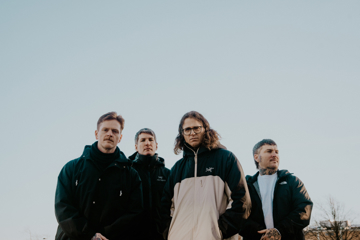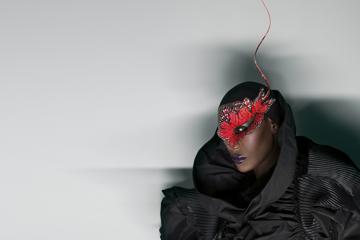Film Carew: Captain Phillips, Prisoners
"With Jackman getting his torturin’ on, this very silly thriller poses as a morality play on whether it’s better for good people to do nothing, or for good people to do way too much."
Captain Phillips may wear the name of Tom Hanks' All-American Icon in its title, but its great surprise is that this isn't a film just about him. Paul Greengrass's latest attempt to add grainy, gritty, vérité airs to a multi-million-dollar action-movie begins surely enough: there's Tom Hanks, company man, on the way to the airport, speaking the subtext aloud in a conversation about how the times they are a-changin', and how kids these days are born into an overpopulated world long on struggling people but short on resources. “Have a safe trip!” Catherine Keener wishes, in a cheap piece of ironic foreshadowing: everyone in the cinema knowing this trip will be anything but safe. From there, Billy Ray's script cuts not to the docks, or the high seas, but some dustbowl hell in Somalia, in which desperate locals are clamouring to earn a birth on a modern-day pirate ship. As the powers-that-be select from the ranks, it's one-part picking schoolyard sports-teams, one-part casting the villains: there's the captain, the loose cannon, the big guy, the newbie. At first, it seems like they'll never go beyond that typecasting, but then the film settles in to a back-and-forth rhythm: between the first-world crew hauling millions of dollars in cargo for a billion-dollar multi-national behemoth, and the rag-tag gang of desperate third-world characters, hoping that the khat wadded up in their cheeks will protect them. Those company men working on the Maersk Alabama debate whether a job is worth courting danger for; but for the village kids on lawless skiffs, there's no discussion: the chance to eat meat and drink liquor is worth risking your life. When Hanks and Somali captain Barkhad Abdi come 'face-to-face' at the opposite ends of binoculars, they're enemies on equal footing; the captains of entirely different vessels.
Of course, Captain Phillips is still a glittering beacon of Hollywood might, so it's always clear who is 'good' and 'bad' in this situation, and that the cavalry - the US Navy, depicted with so much reverence for their high-tech might (and fleets of gleaming, tinted-window Jeeps!) that it borders on Recruitment Video - lurks on the horizon. Once the Americans are taken hostage by the Somalis, it becomes a survival-movie; with crew cowering in the shadows of the engine-room like they're hiding out in Alien, and Hanks trying his best to both charm and outwit those who've got guns pointed at him. Survival-movies only work if you have a vested interest in cheering for characters to pull through; yet the waters, here, are murkier than in, say, Alfonso Cuarón's Gravity or J.C. Chandor's All Is Lost, another film in which an aging A-Lister must look death - and an Oscar nomination! - in the eyes on the high-seas. In those, you're cheering for a sole survivor vs the elements; pulling for the triumph of human will, motivated by essential humanity. Here, Greengrass wants you to desperately desire that Hanks makes it out alive (guess whether he does!), but wants, just as much, for you to feel pity - or, even, that shared, essential humanity - for the villains. Tobias Lindholm's recent A Hijacking drolly portrayed piracy negotiations as just another business deal, yet it always made its Somali interlopers an unsubtitled other, foreign and threatening. Captain Phillips tries to do something more sly: turning its white-man-outwits-the-black-men blockbuster into a portrait of the economics of globalisation; a two-hander that, in spite of its title, is about twin captains each forced to risk their lives for bosses who see only the bottom-line.

"Look, we'll decide who's hotter later. We've got more important shit to deal with right now."
“Making children disappear turns people into demons,” pronounces the evil villain at the centre of Prisoners' many mazes, speaking aloud the central thesis of Aaron Guzikowski's screenplay, whose killer-thriller convolution is matched only by its moral confusion. Carrying the air of a '90s serial-killer movie - it's grim, it's grimy, it's utterly joyless - Prisoners is set in mythical, nameless Smalltown, America: the kind of godfearin', snow-blanketed place where dad recites the lord's prayer before shooting the deer that'll serve up Thanksgiving Dinner venison. When a pair loveable lil' girls - won't somebody please think of the children!- are kidnapped by the creepy owner of a creepy RV, panic and hysteria set in, and Hugh Jackman's macho dad takes that as his cue to enact some vigilante justice. Sit back and wait for Jake Gyllenhaal's look-at-me-blinking-this-is-called-acting, retro-greaser, obsessed-lone-cop to do his job? That's like waiting for the government to give you healthcare!
Don't miss a beat with our FREE daily newsletter
And so, Jackman comes out of his paranoid-weirdo, nuclear-basement bunker, kidnaps the chief suspect, and gets down to some DIY Enhanced Interrogation; whilst bespectacled Terrence Howard, speaking as the audience's conscience, half-heartedly offers tepid “but it's not right!” protests. The presence of Jackman, Gyllenhaal, and Howard - plus Maria Bello, Melissa Leo, and Viola Davis - sends the promotional posters into spasms of Oscar®-Nominated overdrive; and the only non-Academy-endorsed actor on the marquee, Paul Dano, is surely auditioning for one as he doesn't go the Full Retard. It's like a '90s serial-killer movie, but it's given the Prestige Picture gloss; marking the kind-of-depressing Hollywood debut from the previously-great Québécois filmmaker Denis Villeneuve, who's gone from bizarre quirkpieces (August 32nd On Earth, Maelström) to savage portrayals of the lingering spectre of violence (Polytechnique, Incendies), to, now, being Gyllenhaal's chosen man-behind-the-camera. There's little that's attributable to Villeneuve, here; his fondness for mathematics, intersecting storylines, and defiant women entirely absent in this by-the-numbers, direly-masculine, Hollywood huff-and-puffer.
With Jackman getting his torturin' on, this very silly thriller poses as a morality play on whether it's better for good people to do nothing, or for good people to do way too much. 'Good', here, is Prisoners' own measure; how you feel about right-wing, rifle-totin', bible-thumpin', macho-patriarch dads and acquiescing, crying, blame-passing mums may be something else entirely. Kathryn Bigelow's obviously-cinematically-superior Zero Dark Thirty put torture in the popular conversation, but did so with pleasing open-endedness: this was, the film said simply, what happened, suspending judgment so as to leave that - if even possible - in the hands of the audience. Prisoners offers a more closed reading, its self-contained world of justice and retribution allowing audiences too see a film that conforms to their own worldview, whatever that is. For some, Jackman's jacked-up turn as dad-turned-demon will resound as a damning post-9/11 parable, in which bloodlust is mistaken for virtue, with those seeking revenge operating from a place of misplaced piety. But for so many who'll watch Prisoners, its desire for closure-at-all-costs will underline that by any means necessary is the best way to pursue a villain. In the end, the missing girls are brought home, everyone who ever did anything bad has been shot, and the citizens of mythical, nameless Smalltown America can sleep safe, knowing that the great killers-of-children are off the streets. With both Polytechnique and Incendies, Villaneuve was allowed to make more open-ended portraits of notions of violence and retribution, the scars they leave on individuals and community. But, crossing the border, he's had to turn in his Interesting Filmmaker License: Prisoners yet another film in which all needs to be put right, and Justice must be served, no matter the cost.







